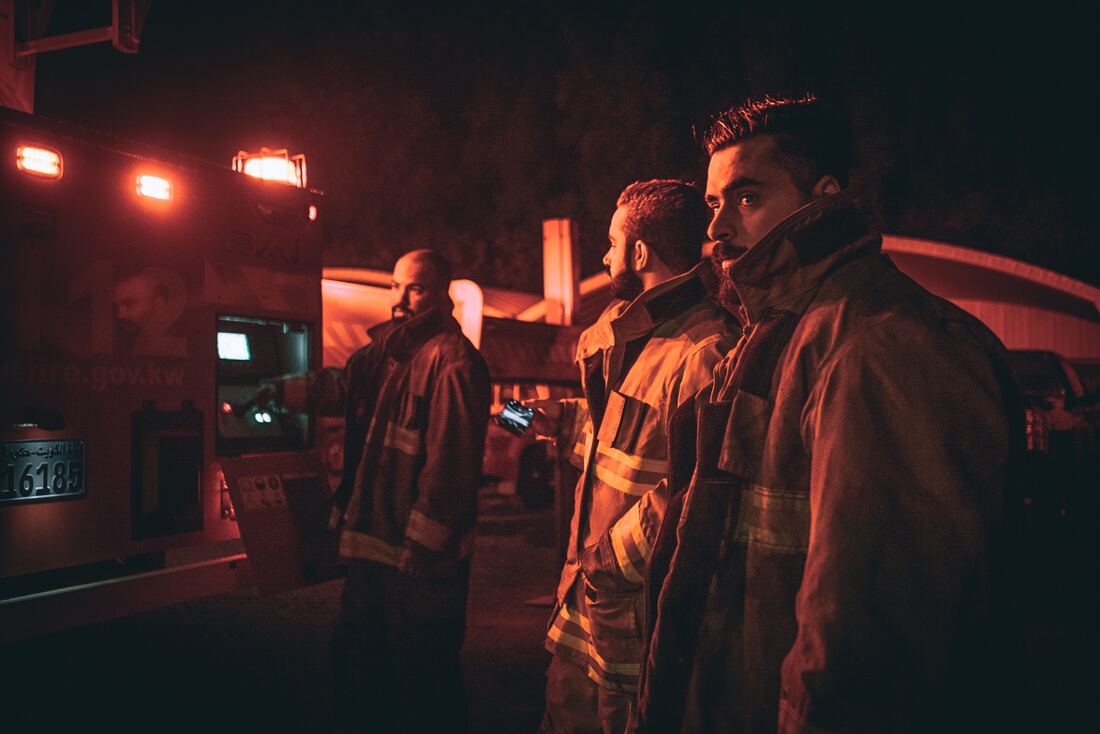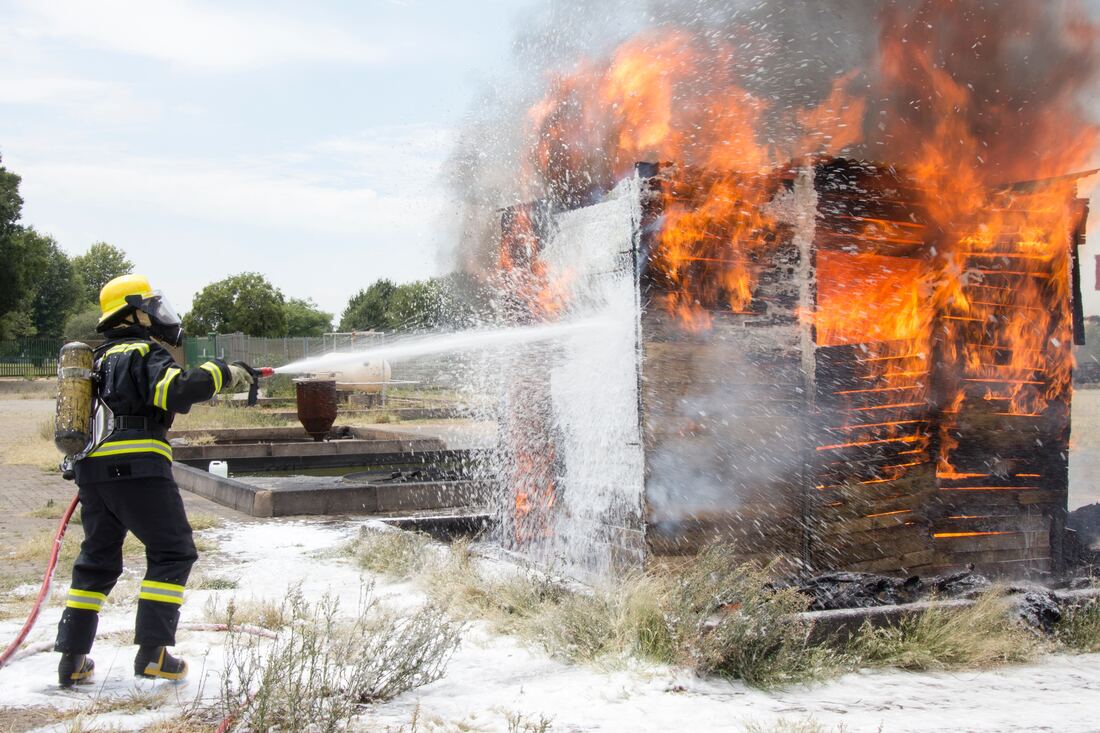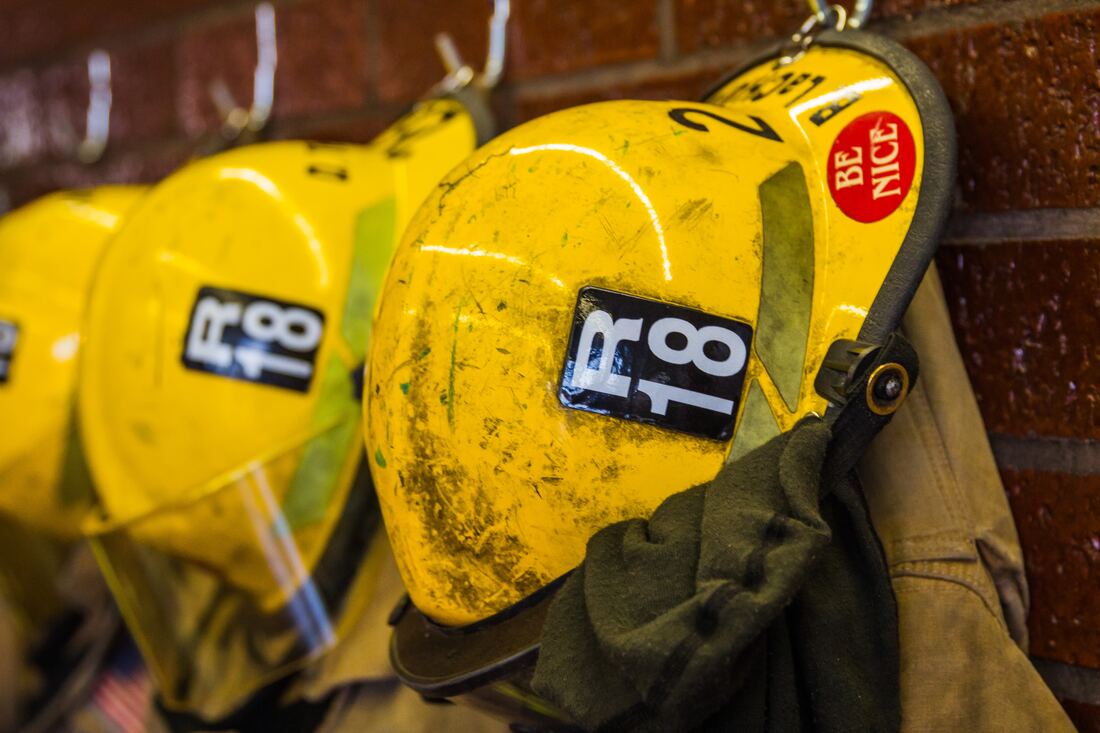|
"Resilient Grieving" by Lucy Hone is a practical guide aimed at helping individuals navigate the process of grief with resilience. Drawing from her own experience of losing her daughter, as well as her expertise in psychology, Hone presents a framework that combines scientific research with personal insights. Here are the key points relevant for a Fire Rescue context:
0 Comments
Mental Health Month holds immense significance for fire rescue personnel. These brave individuals face unique challenges and stressors in their line of duty, often witnessing traumatic events and dealing with life-threatening situations. Here's how Mental Health Month can empower and support fire rescue personnel:
Recovering from burnout is crucial for the well-being of first responders. Here are some strategies that can help them recover:
Counseling can be highly beneficial for firefighter spouses for several reasons, given the unique challenges and stressors associated with being in a relationship with a firefighter. Here are some reasons why counseling can be helpful:
In our little but rapidly growing growing community, Nights of Lights is in full swing. Thousands of families are gathering nightly downtown to see the Christmas lights that illuminate every building, tree and bush downtown along the waterfront. For some, it can be magical to go downtown this time of year and for others, it can also be absolutely infuriating to navigate the crowds and the traffic. Both experiences are valid. The holidays do have a unique way of illuminating so many beautiful and broken parts of our family story. Some us long to gather with family and others may dread it. Thanksgiving, Christmas, and New Years all fall so closely together and any one of these alone can stir up powerful and painful emotions. What about you? Does this season stir up hurts and traumas from your own growing up years or do they activate more current events like the death of a loved one or a divorce or some unresolved conflicts that linger making the holidays a bit of an emotional or relational mine field? You've heard it said, "You can take the boy of out of the country but you can't take the country out of the boy." What is being identified when we say these kinds of things is that we are deeply formed and shaped by our earliest experiences.. Another way of saying this could be, "You can take the boy or girl out of their family but you can not take their family out of that boy or girl." John Mayer's song "In the Blood" touches on several familiar themes of family systems, jealousy, shame, identity, divorce, brokenness, rising, painful emotions, hope, transformation and getting the love we want. Are any of these themes familiar in your story? Whether you are hoping to make sense of things that happened in your own family of origin as a child or something going on more recently in your own marriage and family, our team is eager and able to walk with you in this season. We'd love to help you get oriented in your story as you interact with these unique and impactful areas of your life.
Making an appointment is easy to do. CALL 904.877.4750 and our 24/7 live operator will capture some basic info for our team to begin linking you with an Elbow Tree counselor. You can also EMAIL [email protected] and she will reach back out to help get you linked quickly and effectively. IN THE BLOOD How much of my mother has my mother left in me? How much of my love will be insane to some degree? And what about this feeling that I'm never good enough? Will it wash out in the water, or is it always in the blood? How much of my father am I destined to become? Will I dim the lights inside me just to satisfy someone? Will I let this woman kill me, or do away with jealous love? Will it wash out in the water, or is it always in the blood? I can feel the love I want, I can feel the love I need But it's never gonna come the way I am Could I change it if I wanted, can I rise above the flood? Will it wash out in the water, or is it always in the blood? How much like my brothers, do my brothers wanna be? Does a broken home become another broken family? Or will we be there for each other, like nobody ever could? Will it wash out in the water, or is it always in the blood? I can feel the love I want, I can feel the love I need But it's never gonna come the way I am Could I change it if I wanted, could I rise above the flood? Will it wash out in the water, or is it always in the blood? I can feel the love I want, I can feel the love I need But it's never gonna come the way I am Could I change it if I wanted, can I rise above the flood? Will it wash out in the water, or is it always in the blood? The holidays can be particularly challenging for first responders due to the nature of their work and the unique stressors associated with their profession. Here are several reasons why the holidays can be difficult for first responders:
Are you struggling? Let a member of our team sit with you and help you sort through this. We were never meant to struggle alone. The only thing worse than being in pain is being in pain alone. That is why our team exists. Plain and simple. To walk with fellow struggler through the muck and mire into a brighter and more hope filled future, with some new insight and skill for navigating the hard things that come along with being a human. You can contact our team most easily by calling 904.877.4750 and we will be back in touch within 24-48 hours to explore we can get you scheduled with one of our counseling team members within 7-10 of that callback conversation. Building trust with first responders in a counseling relationship involves addressing their unique needs and challenges. Here are some factors that can promote trust between a counseling professional and first responders:
Firefighters have a unique bond and understanding due to the nature of their work. The peer support system within the firefighting community can be a valuable resource for emotional support and assistance. Here's how firefighters can lean on their peer support system:
Supporting new hires in the fire department is crucial for their successful integration into the team and their overall professional development. Here are some ways to provide support to new hires:
Sleep deprivation can have a significant impact on firefighters' overall well-being and job performance. Here are some effects of sleep deprivation on firefighters:
|
CO-Op TEamReflections for Rescuers Archives
June 2024
Categories |
38 South Dixie Highway
|









 RSS Feed
RSS Feed
